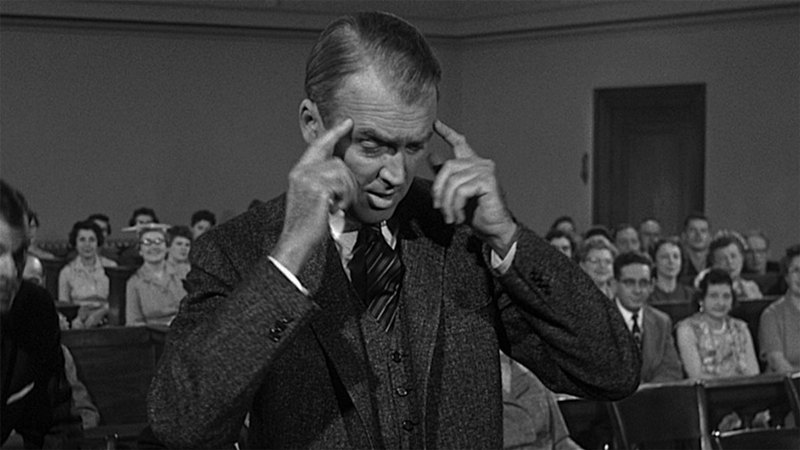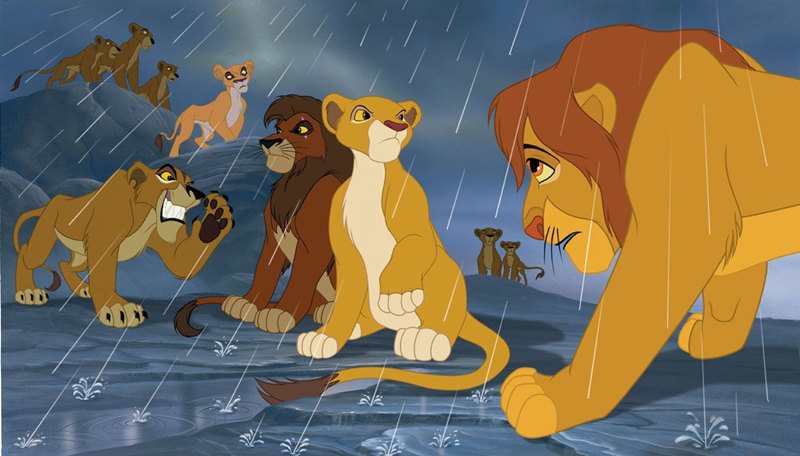I’m sure some sociologist somewhere someday will want to analyze the significance of the American Film Institute’s top two choices for funniest movies of all time being about guys in drag, “Some Like It Hot” and “Tootsie.” Of course, men in women’s clothing enjoys a long and honorable tradition. The Elizabethans wouldn’t allow women on the stage so female roles were played by men and boys. The early silents loved to provide the occasional distraction of men dressed as women, followed by “Charley’s Aunt” on stage and screen, and Milton Berle and Monty Python on television, to name but a few.
In any case, a man in women’s clothing probably never took on as much meaning or got as many laughs as Dustin Hoffman’s character does in “Tootsie.” The movie is funny, it’s thoughtful, and it’s thought-provoking. Not a bad combination for what might have been just another routine comedy in the wrong hands.
Here’s the lineup, and you can see for yourself why it was destined to succeed. The film was produced and directed in 1982 by Sydney Pollack (“Absence of Malice,” “The Firm,” “Jeremiah Johnson,” “Three Days of the Condor,” “The Way We Were”); cowritten by Larry Gelbart (“The Sid Caesar Show,” “A Funny Thing Happened on the Way to the Forum,” the “M*A*S*H” TV series) and an uncredited Elaine May; and stars Hoffman, Jesscia Lange, Teri Garr, Dabney Coleman, Charles Durning, and Bill Murray. Was there any chance it might not come off? Sure, a snowball’s chance. It won an Oscar for Lange as Best Supporting Actress and nominations for Best Picture, Best Director, Best Actor (Hoffman), Best Supporting Actress (Garr), Best Original Screenplay, Best Cinematography, Best Song (“It Might Be You”), Best Editing, and Best Sound.
By now most folks know the story, but here it is in a nutshell. Michael Dorsey (Hoffman) is a struggling actor in New York City that nobody will hire. He’s rude, temperamental, and obstinate. He’s even been fired from a job as a tomato because he wouldn’t listen to the director’s dictates about the tomato having to sit down. “Would a tomato sit down?” He makes a living teaching acting, doing some little theater, and working as a waiter. His roommate, Jeff (Murray in a wonderfully droll, deadpan part), is a struggling playwright, equally penniless and working as a waiter. Things would continue this way if it weren’t for Michael’s friend, Sandy (Garr). When she’s turned down for a role in a television soap called “Southwest General,” Michael determines to disguise himself as a woman and try out for the part himself. Much to his surprise, he gets it! But in order to receive a paycheck, he must continue the masquerade indefinitely, especially when audiences begin to love Dorothy’s strong self-assertion, and when the show’s ratings skyrocket.
It’s during the TV program that the fun really develops. Michael becomes very assertive as “Dorothy,” his alter ego, standing up to the male chauvinists on the program in a way they’ve never seen before from a woman. The two major offenders are the soap’s director, Ron Carlyle (Coleman), a womanizer who ignores everybody except the casts’ prettiest women, and John Van Horne (George Gaynes), the dimwitted actor who plays the resident head physician on the series and is known among female cast members as “the tongue.” Dorothy has to put Carlyle in his place (“…don’t call me Toots”) and fend off the romantic advances of Van Horne. To complicate matters further, Michael falls in love with Julie Nichols (Lange), the female ingenue of the show, an innocent who has fallen under the spell of the unscrupulous Carlyle. Naturally, Michael can’t tell Julie he’s really a guy, and she comes to think of Dorothy as a lesbian. But that’s nothing; Julie’s dad (Durning) falls for him, Sandy suspects he’s gay, and his roommate thinks he’s plain nuts.
You can tell that all of this is a perfect setup for some funny and provocative jabs at women’s lib, gender consciousness, equal rights, sexual freedom, as well as soap operas. Michael winds up learning something about himself as well as about the opposite sex in the process, saying toward the end, “I think Dorothy is smarter than I am.” On the show he goes by his instincts, often ad-libbing lines and altering the show’s basically male-dominated attitude. Dorothy’s example encourages the female cast members to stand up for their rights, too.
The movie gets funnier as it goes along until it reaches a hilarious climactic scene during a live performance on the soap set. Hoffman is at his best in the role, his most challenging part since “The Graduate.” Never mind asking if a man could really pull off such a stunt or for how long. Hoffman makes us believe it could be done, and that’s enough. Pollack, the film’s director, is also good in a small role as Michael’s exasperated agent. In a small role Geena Davis is another looker on the show and another character who learns to assert herself through Dorothy’s model.
Video:
Columbia TriStar offer the film in two formats, widescreen and pan-and-scan, on flip sides of the disc. I thought we had seen the last of these flip-sided discs, but I guess there’s still enough interest in the full-screen format to justify the expense of producing two versions. The anamorphic widescreen rendition measures about 2.17:1 across a standard television; the pan-and-scan rendering chops about 40% of the image off the two sides in order to increase the middle to fit the tube. If it’s your idea of a good time to have every inch of your big-screen real estate occupied by blown-up pixels, this is the way to do it. As for myself, I chose the widescreen edition and enjoyed its natural color and reasonably well-focused image. I noticed some small degree of grittiness about the picture and a few occasional moiré effects, but most of the time the video looked pretty good.
Audio:
The audio options are the film’s original monaural soundtrack or a newly created Dolby Digital 5.1 track. The DD 5.1 is a nice step up from the mono, but it is still rather limited in left-to-right stereo spread and even more limited in rear-channel projection.
Extras:
I’m afraid there’s not much beyond the movie, however. I suppose once Columbia opted to provide two versions of the film, there wasn’t a lot of capital left over to offer much else. There are some brief cast and director filmographies, twenty-eight scene selections, a four-page informational booklet insert, but not even a trailer for “Tootsie.” Instead, there are bonus trailers for three other Columbia DVD releases with Murray or Hoffman: “Groundhog Day,” “Ghostbusters,” and “Hook.” English and French are included as spoken languages, and since this is, after all, a Columbia release, the usual wide assortment of subtitles: English, French, Spanish, Portuguese, Chinese, Korean, and Thai.
Parting Thoughts:
“Tootsie” is sharp-witted, satiric, telling, sweet, intellectual, and perceptive, a sophisticated comedy that’s appealing on a wide variety of fronts. What’s more, in spite of its chancy gender-switching subject matter, it never stoops to cheap jokes or sordid gags. It maintains a high level of largely unobjectionable funniness throughout. It is, in short, that one-in-a-million comedy that everyone–young, old, highbrow or low–can enjoy with ease. It’s nice to see it on DVD, with or without the extras.


